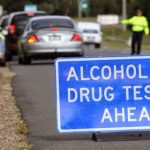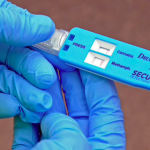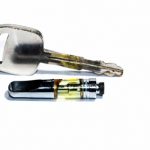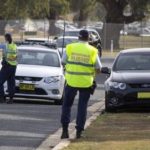Punishment Disguised as Safety: The Injustice of Drug Driving Laws

Enpsychedelia presenter Nick Wallis hosted a roadside drug testing forum on 4 May at the Nimbin MardiGrass, with panellists that included Reason Party leader Fiona Patten, HEMP Party secretary Andrew Kavasilas and renowned medicinal cannabis practitioner Dr Andrew Katelaris.
During the event, panellists pointed to the injustices propagated by the flawed regime that instead of testing drivers for impairment to ascertain whether they pose a safety threat, only checks for the presence of certain substances in order to punish citizens for illicit drug use.
However, weeks later, Wallis found himself on the wrong side of NSW drug driving laws, when, on 28 May, he was pulled over by police in his home state of Victoria. Following a licence check, the officers were about to impound his car as, unbeknownst to him, he’d been driving whilst disqualified.
Back in November last year, Wallis was pulled over for a roadside drug test by NSW police as he was leaving the Strawberry Fields festival in Tocumwal. And the long-time drug law reform advocate tested positive for cannabis and MDMA, despite not having consumed any drugs that weekend.
And on following up last month after being pulled over, Wallis found that an administrative error on the part of Tocumwal police had led to his court attendance notice and subsequent licence suspension being sent to another address four doors down from where he now lives.
Punishment disguised as safety
“This scheme is about using the excuse of road safety to catch people who use drugs,” Mr Wallis made clear. “There should be no surprise that the random tests often take place outside music festivals.”
And Wallis stresses that regardless of how it might appear, there’s nothing analogous about roadside drug testing and random breath testing (RBT) for alcohol. RBT is a practice that tests drivers for scientifically proven levels of alcohol in the blood to gauge whether they’re unfit to drive.
But, when it comes to drug driving, police in both NSW and Victoria just test for mere traces of amphetamines, MDMA and THC: the psychoactive ingredient of cannabis. The only difference between the states is that NSW added cocaine to its testing program in July last year.
So, under these regimes, police have no way of knowing whether a driver is actually inebriated when they test positive for the presence of a drug in their saliva, which means thousands of people are losing their licences and having to pay steep penalties for posing no road safety risk whatsoever.
“If we want safer roads, let’s work toward that. If we want to help people struggling with addiction, let’s work toward that,” Wallis told Sydney Criminal Lawyers. “Using technology to discover someone’s drug use by invasive means and then penalising them for that is neither of those things.”
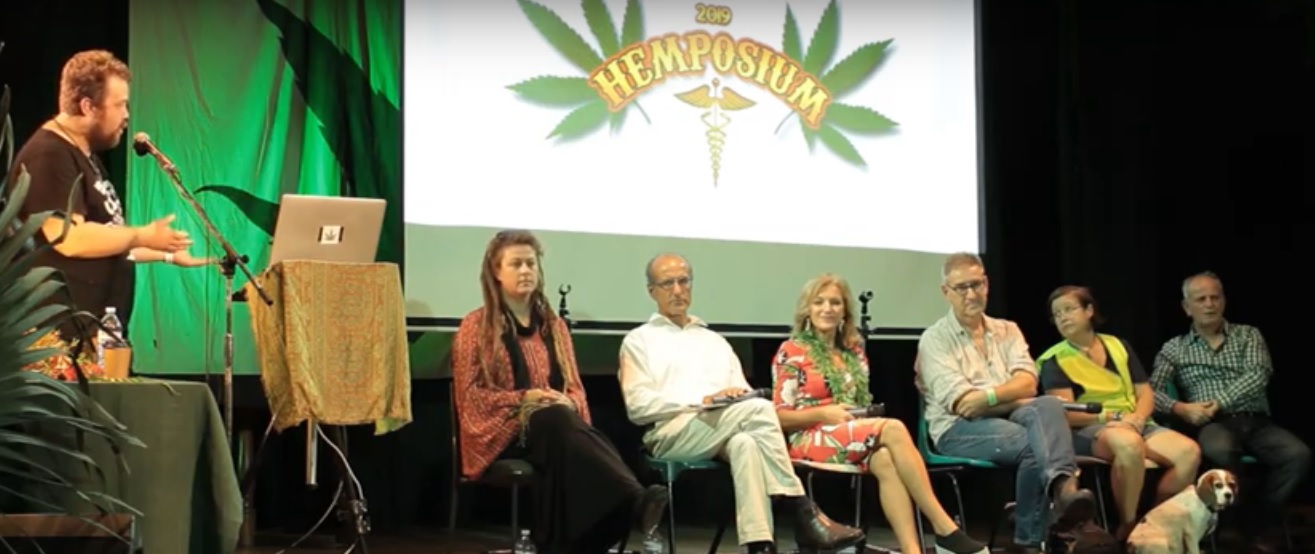
A failed drug war tactic
In 2004, Victoria became the first state to introduce trace-based saliva testing for a select number of drugs. All other jurisdictions have since followed suit. Although, Tasmania and the NT test for a longer list of drugs, while the island state backs up a positive saliva finding with a blood test.
A highly unfair aspect to these drug driving regimes is that traces of illegal drugs remain in a person’s system for quite a time after their intoxicating effects have worn off. This is especially true of THC. It’s non-psychoactive traces can stick around in fat cells for weeks on end.
In NSW, there have been a number of court rulings that reflect this. Lismore Magistrate David Heilpern found one man not guilty of cannabis driving as he hadn’t smoked for nine days prior to testing, while he found a woman innocent as she’d tested positive due to passive smoking.
Although, in this state, the Coalition just changed the laws, so a first time drug driving offender is no longer sent to court, rather they automatically lose their licence and get slapped with a fine. And it’s been suggested this change was made because people appearing in court were getting off.
As for Mr Wallis being charged over having cannabis and MDMA in his system while he claims he hadn’t taken any, well, a recent Lambert initiative study found that the salvia testing being used by NSW police gets it wrong around 20 percent of the time.
Testing for road safety
Mr Wallis is currently running a Victorian Legislative Council online petition, calling for the establishment of a parliamentary review of the state’s drug driving laws with a focus on looking into alternative models.
The petition is based on recommendation 24 of the Victorian Parliamentary Inquiry Into Drug Law Reform, which suggested looking into impairment-based drug driving models with a scope for a wider amount of drugs tested and provisions that take into account medicinal cannabis use.
“There are new technologies and advancements in the area of impairment testing,” Mr Wallis continued. And he added that he’s interested in opening up a dialogue about how road safety can actually be improved by looking into the way various drugs are affecting people’s ability to drive.
An impairment-based drug driving model has been operating in Norway since February 2012. There police are testing drivers for the proven impairment levels of 20 non-alcohol drugs, including prescription benzodiazepines, as well as all four illicit drugs being tested for in NSW at present.
Prohibition: the real culprit
The Victorian Drug Law Reform Inquiry found evidence that trace-based drug testing in the US is seen as justified, as taking these substances is perceived as morally corrupt. And it’s also been a way of avoiding the need to carry out the science required to pinpoint real drug impairment levels.
As for Wallis’ suspended licence, he fronted up to a NSW court last week to have the initial decision annulled. However, he ended up pleading guilty to the drug driving charge, rather than challenging it, as he’d been advised it would be too costly to try.
The 3CR radio presenter said the real issue behind these laws is “labelling the taking of a drug in and of itself the problem”. He asserts that this isn’t the case, “and accepting that people seek altered states is one step toward better addressing the problem of those who do abuse substances”.
“Road safety laws should be focused on road safety,” Wallis concluded. “We have, and need more, programs to help those struggling with addiction. We can do better.”
Going to court for a traffic offence?
If you are going to court for a traffic offence, call or email Sydney Criminal Lawyers anytime to arrange a free first consultation with an experienced, specialist traffic lawyer who will accurately advise you of your options, the best way forward, and fight for the optimal outcome in your specific situation.


